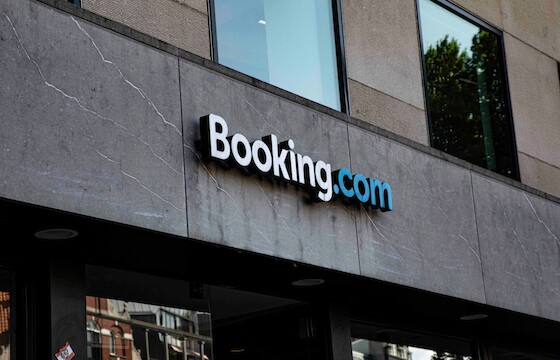1. CASE SUMMARY
A. Summary of facts
Yves Saint Laurent SA (‘Yves Saint Laurent’), a French subsidiary of the Yves Saint Laurent Group, produces luxury cosmetic products.
Yves Saint Laurent notifies its selective distribution agreements to the European Commission (‘Commission’) for the distribution of its perfumery, skin care and beauty products. Leclerc is a purchasing association supplying a network of retail outlets in France called Centres Distributeurs Leclerc (‘Leclerc centres’), most of which are hypermarkets or supermarkets. Leclerc submits observations to the favourable decision proposed by the Commission on the ground that its adoption would preclude the sale of luxury cosmetic products from a number of suitable Leclerc centres.
In particular, the cumulative effect of the selection criteria approved in the Commission decision is to exclude a priori from the Yves Saint Laurent selective network certain hypermarkets trading under the name É. Leclerc, despite the fact that they would be capable of selling luxury perfumes in proper and product-enhancing conditions. Leclerc initiates an appeal before the Court of First Instance (‘CFI’) following the adoption of the Commission decision.
B. Legal analysis
B.1 - Article 101(1) TFEU
The CFI’s assessment of the validity of the Commission decision in view of Article 101(1) TFEU is based on four questions:
Is a selective distribution system based on qualitative criteria in the luxury cosmetics sector compatible with Article 101(1) TFEU?
The CFI first outlines the framework of analysis which includes references to the Metro, L’Oréal and Vichy cases. (§111-117)
The CFI observes that a selective distribution system falls outside the scope of Article 101(1) TFEU if it is objectively justified, taking into account also consumer interests. In that regard, it is in the interest of consumers seeking to purchase luxury cosmetics that such products are appropriately presented in retail outlets. Selection criteria which seek only to ensure that they are presented in an enhancing manner pursue an objective which improves competition by preserving that luxury image and thus counterbalances the restriction of competition inherent in selective distribution systems. (§118-119)
The CFI then analyses that Yves Saint Laurent’s selective distribution system must be open to all potential retailers who are capable of ensuring that the products will be well presented to consumers in an appropriate setting and of preserving the luxury image of the products. (§122)
Following that analysis, the CFI finds that, in the luxury cosmetics sector, qualitative criteria for the selection of retailers which do not go beyond what is necessary to ensure that those products are suitably presented for sale are in principle not covered by Article 101(1) TFEU, in so far as they are objective, laid down uniformly for all potential retailers and not applied in a discriminatory fashion. (§123)
Do the selection criteria of Yves Saint Laurent fulfil the conditions required under Article 101(1) TFEU?
The CFI confirms that selective criteria must be determined objectively by the manufacturer. However, it is not for the CFI to rule on the application of selective criteria applied in specific cases (i.e., in this case, by Yves Saint Laurent). The national courts are competent to determine whether the criteria have been applied in a discriminatory or disproportionate manner. (§124-130)
With regard to the legality of the selective criteria of Yves Saint Laurent, the CFI provides the following assessment:
- The criteria relating to professional qualifications: The CFI finds that having a person in the retail outlet capable of giving consumers appropriate advice or information is a legitimate requirement for the sale of luxury cosmetics and an integral element in the proper presentation of those products. Qualifications including a beauty diploma or an equivalent professional qualification may be required. (§131-134)
- The criteria relating to the location and fittings of the retail outlet: The CFI finds that it is for the competent national courts to decide whether criteria relating to (i) the surroundings and external appearance of an outlet and (ii) the sale of other goods detracting from the Yves Saint Laurent brand image, are applied in a discriminatory manner. According to the CFI, criteria relating to the sale of other activities carried on in the retail outlet are discriminatory in so far as they allow Yves Saint Laurent to treat applications by retailers less favourably merely because perfumery represents a minority of their activities. The CFI annuls the Commission decision in this respect. (§135-155)
- The criterion relating to the shop name: The CFI observes that such a criterion must be applied with particular caution when there is no doubt that the retailer has made the necessary investments to satisfy all the requirements concerning the material conditions for selling the products and has accepted other obligations. In such case the national courts must assess whether such criterion is not used for the sole purpose of excluding a retail outlet from the network where there is no genuine risk of the image being prejudiced. (§156-163)
Are members excluded from the Yves Saint Laurent network a priori?
The CFI analyses and finds that Leclerc has not adequately established that there are barriers preventing large retailers from engaging in the distribution of luxury cosmetics if their outlets are appropriately fitted for the sale of such products. Moreover, any refusal or admission in a specific case must be assessed by the competition national courts or authorities. (§164-177)
Does Article 101(1) TFEU apply because there are parallel networks in the relevant sector?
The CFI first outlines the framework of analysis which includes references to the Metro II case. (§178-179)
Although it is not disputed that almost all the manufacturers in the luxury cosmetics sector use distribution systems similar to that of Yves Saint Laurent, the Court finds that selective distribution of luxury cosmetics improves competition in the interests of consumers. Article 101(1) TFEU does not automatically apply merely because all the manufacturers in the luxury cosmetics sector have chosen the same distribution methods.
If the selection criteria of Yves Saint Laurent are not caught by Article 101(1) TFEU, the cumulative effect of other networks does not alter that conclusion unless it is established that there are barriers preventing access to the market by new competitors or that there is no workable competition (in particular with regard to price, taking into account the nature of the products). According to the CFI, no such barriers exist for the hypermarkets, and Leclerc has not adduced sufficient evidence that the market has become so rigid and structured that there would no longer be workable competition between authorized retailers, in particular with regard to price. (§180-192)
B.2 - Article 101(3) TFEU
The CFI dismisses all of Leclerc’s arguments with respect to the alleged inapplicability of Article 101(3) TFEU. (§193-205)





Sign in to post comments